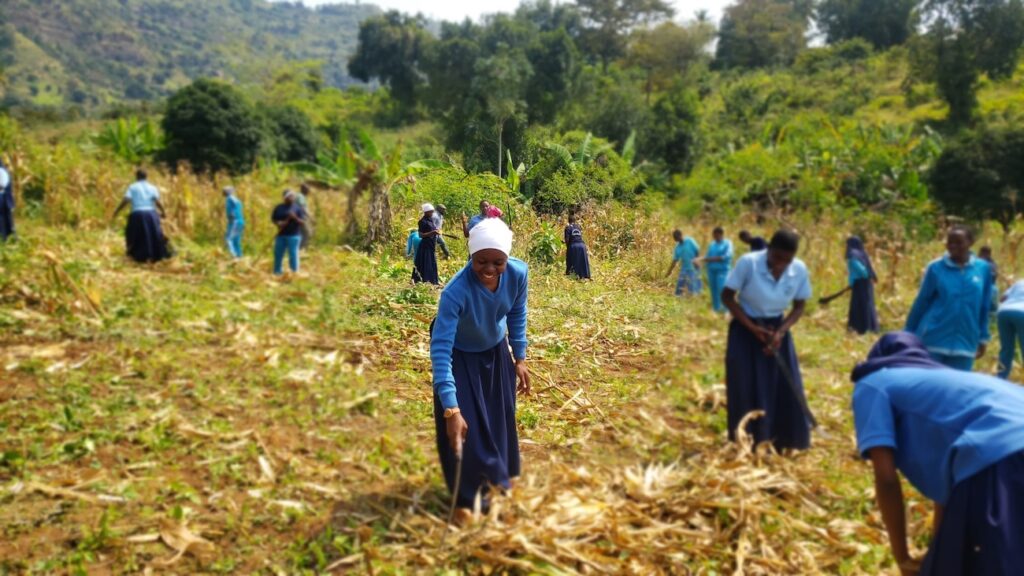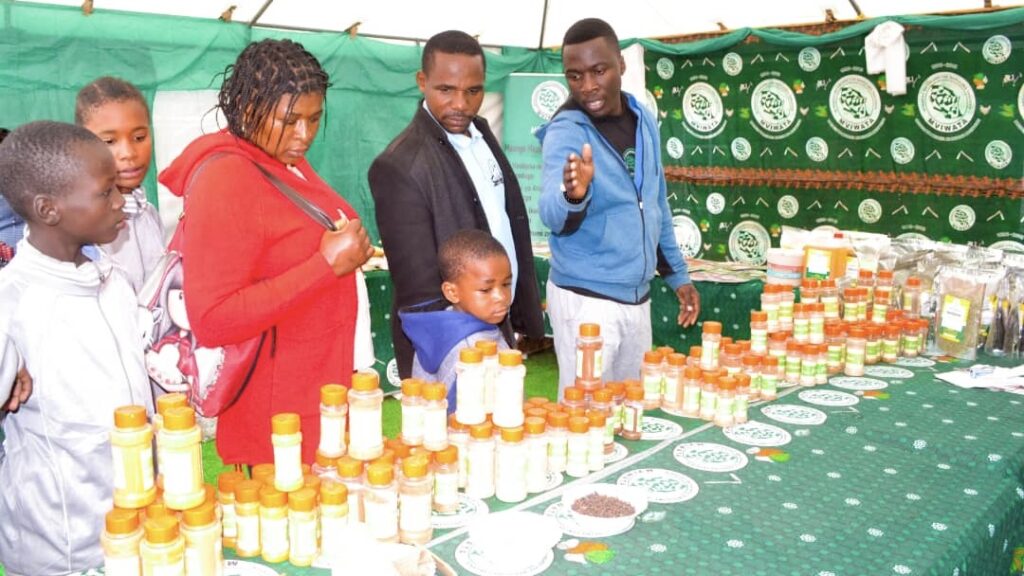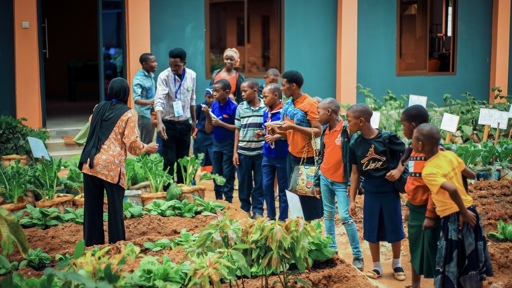Nane Nane, “Eight Eight” in Kiswahili, referring to the 8th day of the 8th month, is Tanzania’s National Farmers’ Day, celebrated annually on August 8 as a public holiday dedicated to recognizing and honoring the role of farmers, fishers, pastoralists, and other food producers in the country’s economy and food security. It was officially declared a national holiday in the 1990s to promote agricultural development and acknowledge farmers’ contributions.
 Nane Nane at Mkuyuni Secondary School. Photo: MVIWATA
Nane Nane at Mkuyuni Secondary School. Photo: MVIWATA
MVIWATA’s grassroots celebrations
In its continued commitment to defending small-scale farmers and promoting food sovereignty, MVIWATA (Mtandao wa Vikundi vya Wakulima Tanzania – National Network of Small-Scale Farmers Groups in Tanzania) organized events at the Mwalimu Nyerere Show Grounds in Morogoro, Themi Show Grounds in Arusha, and Dole Show Ground in Zanzibar. At these sites, the farmers’ network showcased a range of agroecological practices, traditional seeds, and farmer-processed products that directly challenge the extractive and unsustainable logic of industrial agriculture.
Read more: Lessons from the Arusha Declaration: MVIWATA reflects on the struggle for farmers and the working class
Reclaiming the original spirit of Nane Nane
While Nane Nane has historically been a day to celebrate the contributions of farmers to the Tanzanian economy, in recent years it has become increasingly corporatized. In response, MVIWATA has taken deliberate steps to reclaim and re-root the day in its original purpose. This year, it organized Nane Nane celebrations across more than 30 local networks throughout the country – a decentralization strategy meant to “restore the original spirit of the day as a celebration by the farmers and for the farmers.”
 Nane Nane at the Themi showgrounds. Photo: MVIWATA
Nane Nane at the Themi showgrounds. Photo: MVIWATA
In a post shared during the week, MVIWATA honored the role of smallholder farmers as “the lifeline of our food basket and the pillar of the national economy”, adding, “It is our tireless efforts to feed the nation and keep the country food-sufficient that contribute to the tranquility of the nation. On this day, we, the members of MVIWATA, remind everyone that our food basket, our sovereignty, and our future depend on the sweat and tireless work of the smallholder farmers.”
The statement issued a series of bold demands, including:
Economic justice – Smash all exploitative chains in agricultural marketing and financing leading to deadly debt traps; instead, develop rural-based supply services owned and operated by farmers themselves.Land rights and the commons – Smash land grabbing, guarantee secure land tenure and resist eviction. Land is life, not a commodity!Agroecology, food sovereignty, and climate justice – Develop a production system that is based on people’s rights, cultures and traditions. Fake climate solutions should be smashed!
Throughout the week, MVIWATA’s pavilions and local events became vibrant spaces of exchange and solidarity.
Part of a global struggle
MVIWATA’s actions are part of a larger continental and global movement for food sovereignty, aligned with networks like La Via Campesina, which unites peasant organizations across more than 80 countries. The fight in Tanzania mirrors struggles in Kenya, Zimbabwe, and beyond, where farmers are resisting corporate control, land dispossession, and climate injustice.
As land struggles continue and climate challenges mount, the rallying cry “Mtetezi wa Mkulima ni Mkulima Mwenyewe”, the defender of the farmer is the farmer themself, continues to be the MVIWATA rallying call.
The post MVIWATA champions peasant agroecology at 2025 National Farmers’ Day celebrations appeared first on Peoples Dispatch.
From Peoples Dispatch via this RSS feed


